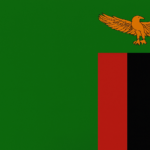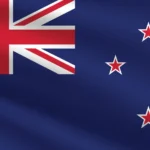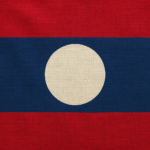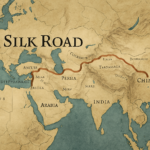
Tanzania, officially the United Republic of Tanzania, is a country in East Africa known for its vast wilderness and wildlife which includes the “big five” game (elephant, lion, leopard, buffalo, rhinoceros). It borders Uganda to the north; Kenya to the northeast; Comoro Islands and the Indian Ocean to the east; Mozambique and Malawi to the south; Zambia to the southwest; and Rwanda, Burundi, and the Democratic Republic of the Congo to the west. Mount Kilimanjaro, Africa’s highest mountain, is in northeastern Tanzania.
Tanzania is East Africa’s largest country, Africa’s 13th largest and the world’s 30th largest.
Over 120 languages are spoken in Tanzania, most of them from the Bantu family. The kiswahili language (Swahili) is the official language of Tanzania and Kenya.
Tanzania has been inhabited for at least 7,000 years. The country’s earliest people were hunters and gatherers, who lived in the region as far back as 5000 BC.
The use of left hand to greet someone is considered impolite and rude in Tanzania.
The country’s name is a combination of Tanganyika and Zanzibar, from when the two states merged in 1964.
Tanzanians prefer drinking tea in the morning as a breakfast beverage and coffee in the evening.
The Tanzanian flag is made up of green and blue triangles separated by a black diagonal stripe with yellow borders. Black represents the people, green agriculture and the land, yellow the country’s mineral wealth and blue the Indian Ocean.
Tanzania is made up of at least 120 tribes, each significant in their own way.
Tanzania has seven UNESCO World Heritage Sites. In Africa, only South Africa (10), Ethiopia (9), Morocco (9) and Tunisia (8) have more.
Before Tanzania merged with Zanzibar in 1964, it was known as Tanganyika and had its own flag – a green background cut into half by a black and yellow band.
Freddie Mercury, legendary lead singer of the British rock band Queen, was born in Tanzania. He was born in 1946 on the island of Zanzibar.
Tanzania has an island called the Mafia.
Tanzania is home to Africa’s highest mountain, Kilimanjaro, at 5,895m (19,340ft).
The country has designated 25% of its land to wildlife sanctuaries and national parks.
The UNESCO-listed Serengeti National Park in Tanzania is known for its annual migration of millions of animals such as wildebeest, gazelles and zebras, and their predators.
In total area comparison, Tanzania (947,300 sq km) is just a little bit more than twice the size of California (423970 sq km).
The UNESCO-listed Ngorongoro Crater in Tanzania is the world’s largest caldera and is also known for its diversity of wildlife.
According to the CIA, all land in Tanzania is owned by the government which can lease land for up to 99 years.
Africa’s largest lake is mainly located in Tanzania. Lake Victoria, also called Victoria Nyanza, has an area of 69,484 sq km (26,828 sq mi) and a coastline of 3,220km (2,000mi).
Tanzania receives close to 500 million dollars of aid from the world, most of it being paid by the UK and the US.
Lake Tanganyika is the longest freshwater lake in the world at 660 km (410mi) and the second deepest at 1,436m (4,710ft) after Lake Baikal in Russia. Tanzania shares Lake Tanganyika with DR Congo, Burundi and Zambia.
Ruaha National Park, the largest national park in Tanzania, is home to its largest elephant population.
Dar es Salaam is Tanzania’s largest city and was named by the first sultan of Zanzibar.
A German geologist named Hans Meyer was the first person to climb the Mount Kilimanjaro in October 1889.
The highest altitude pizza delivery on land took place in Tanzania. In 2016, a pizza was delivered to the summit of Kilimanjaro. It took four days to deliver the pizza from a new restaurant to the top of the highest mountain in Africa.
Bernard Goosen from South Africa was the first person to scale to the top of Mount Kilimanjaro on a wheelchair.
Ugali is the Tanzanian national dish. Made from cassava or maize flour, the staple dish is usually served with a sauce containing meat, fish, beans or greens.
Nearly 40% of the whole population lives in extreme poverty, and nearly 60% lives below the World Bank designated poverty line of $1.25 a day.
Around 38% of Tanzania’s total land area is protected and 31% of all its total territorial (including marine) area is protected.
Zanzibar, Tanzania is home to the place where the shortest war in the history was fought. The war was fought between the British forces and Khalid bin Barghash. The war lasted between 38 and 45 minutes and the British succeeded.









